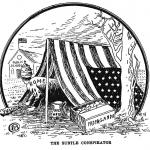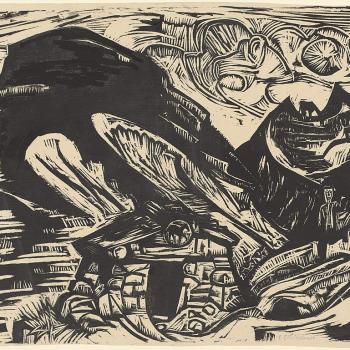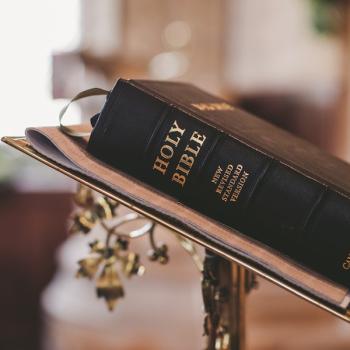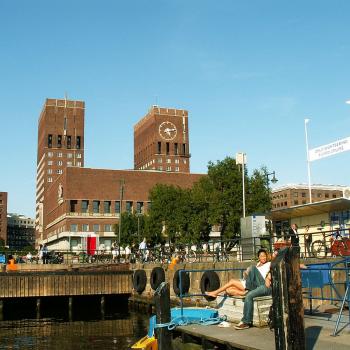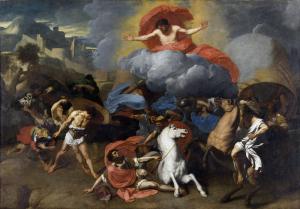
This is a consolidation of three posts I wrote a few years ago, re-posted in an, I hope, easier to read format. You can find the originals here, here, and here.
Today and for the next day or two I’ll focus on my journey to Christianity, with specific references to the events, thinkers, and ideas that guided me along the way. With faith, I hope doing so will acquaint readers with that journey while guiding me along the befuddling and treacherous path that is bearing the cross.
I was baptized, and that’s about it. We never attended Mass, not even on Christmas and Easter. All of my catechesis and the later sacraments of initiation came to me because I went to Catholic school, and despite some cringeworthy memories, I owe very much to those years. Of course, I understood virtually nothing of Christianity, but without those VeggieTales movies and weird elementary-school plays about the prophet Hosea, I probably never would’ve thought about Christianity. My basis was not firm, but it existed. As a friend recently told me, he didn’t realize the cross was a religious symbol until he was in college (despite being from a “Christian” background). He’s from New Jersey and it’s a common ornament there. I may not have understood much, but at least there was a spark of the sacred in my life.
In high school I was diagnosed with Crohn’s Disease, lost my ability to walk properly for a bit, and then lost my mother to cancer (on the day of my graduation, no less). To me, it was apparent that life was not fair, not in some grand sense, but merely on the mundane level. I could expect nothing, positive or negative, from the world and its inhabitants. If I was well liked, that was a glimmer of light in an otherwise dense darkness. Anything bad that happened merely became par for the course. Suffering didn’t make sense to me, but I readily accepted it as part and parcel of what it meant to exist. No explanatory system, New Age or ancient, could convince me that there was some way to eradicate all suffering. To this day, I am at best puzzled, at worst offended, by the “Prosperity Gospel.”
My path had to be circuitous. With all due respect to my Thomist brothers and sisters or those who find refuge in clear-cut theological systems, none of that would have made sense to me (nor does some of it now). I was (and inescapably am) some derivative form of Judy from Doug, a wannabe Beat or Sartrean existentialist in a black turtleneck sucking on an unfiltered cigarette. I say that un-ironically and welcome the charge that such views are for adolescents.
Thus it was Nietzsche who showed me the way. Friedrich Nietzsche, and then later Søren Kierkegaard, confirmed my feeling that life did not have to make sense; I didn’t need to expect miracles, even minor successes, but could simply live, taking responsibility for my actions. To this day, I am in full agreement with a statement from my teacher’s teacher, Walter Kaufmann: “I know of no other great writer in the whole nineteenth century, perhaps even in the whole of world literature, to whom I respond with less happiness and with a more profound sense that I am on trial and found wanting, unless it were Søren Kierkegaard.” Part of me wanted to feel scrutinized, held accountable. Ecclesiastes and Job made (and make) more sense to me than theological evasions. I didn’t want or need a sound system; I needed something to look me square in the eyes and tell me to be thankful for the fact that I wasn’t dead, something to make me want to get up in the morning not because life was going to be better, but because it was life as such. Hence why being pro-choice never made any sense to me (even before I was religious). It seemed the ultimate act of ingratitude.
Further, in a mundane sense, Nietzsche’s predictions (Last Men, Nihilists, etc.) made perfect sense to me. The blasé politics of my day barely concealed that they were a mere secularization of Christian doctrine, a bunch of people wanting to be nice with a limited ground for trying to do so. People acted like happiness was comfort, when it was more than apparent to me that comfort was at best ephemeral, at worst a distraction. Science was similar; even in its practical applications, it could do little more than delay the inevitable, and even then run the risk of fleeing an inescapable suffering. Hence, when I first read George Grant’s book on Nietzsche Time as History, passages like this one jumped out at me: “In much writing in English, Nietzsche is spoken of as a second-rate poet masquerading as a philosopher, or as an aphorist who did not face questions comprehensively, or as a romantic of the feelings who was not concerned with science. His thoughts are impugned by the fact that he retreated into madness (to use that ambiguous word).” “This is me,” I thought, and I blinked.


